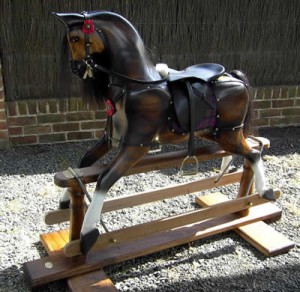 This is almost always the reaction when I tell people I’m studying a Master of Gastronomic Tourism. As I near the end of my degree, I’ve put a lot of thought into how to shape it into my dream work/life purpose.
This is almost always the reaction when I tell people I’m studying a Master of Gastronomic Tourism. As I near the end of my degree, I’ve put a lot of thought into how to shape it into my dream work/life purpose.
Gastronomic Tourism as a discipline came into being as observation, experience and research revealed tourists plan entire vacations around food. Places, precincts, restaurants, food tourism companies, producers, growers, regions, cities and countries wanted to leverage this trend for their best interests.
So the marriage of Gastronomy and Tourism took place and blended the discovery, tasting, experiencing, researching, understanding and writing about food preparation and the sensory qualities of human nutrition as a whole and how it interfaces with the broader culture; AND travel for pleasure or business, the theory and practice of touring, the business of attracting, accommodating, and entertaining tourists and may be international, or within the traveler’s country or region.
A Gastronomic Tourism professional is someone with the skill set to develop destinations for social and economic benefit through innovative activities showcasing the unique food and drink culture of that destination.
“Please explain.”
Unpacking that definition:
‘professional’ means I will be engaged in a this activity as my main paid occupation;
‘develop’ means to bring into existence, grow or cause to grow and become more mature, advanced, or elaborate;
‘destinations’ denote a place that people will make a special trip to visit. It can be a restaurant, precinct, club, town, city, region, state or country.
‘social’ means in pleasant companionship with friends or associates, the welfare of human beings as members of society and tending to form cooperative and interdependent relationships with others;
‘economic’ relating to, or based on the production, distribution, and consumption of goods and services;
‘benefit’ is something that produces good or helpful results or effects or that promotes well-being;
‘innovative’ introducing new ideas; original and creative in thinking to a process;
‘activities’ are direct experiences with animation, liveliness, an active movement or operation, using bodily power, function, or process;
‘showcasing’ an exhibit or display, usually of an ideal or representative model of something in its setting or place;
‘unique’ means limited in occurrence to an embodiment of characteristics or a given class, situation, or area;
‘culture’ means the ideas, customs, and social behaviour of a particular people or society, arts and other manifestations of human intellectual achievement regarded collectively.
“Yes, but what will you do, exactly?”
Bring a love of, experience, knowledge and skills in business, tourism, marketing and gastronomy together to provide the food tourism strategy for those destinations.
Depending on the type of destination, developing food tourism for a place from zero would involve site visits, mystery shopping and research to identify the destination’s hidden or historic gastronomic assets, uncover the food stories of locals, immigrants and refugees and discover their food heroes. If the destination had some existing food tourism, an audit of those and potential others would be in order.
One might use a combination of public forums and discussions to uncover what the community think are their marketable gastronomic assets. It may be necessary to conduct focus groups and workshop ideas with stakeholders to refine the ideas.
Along the way one would need to identify and engage corporate sponsors, social enterprises, volunteers and community groups that could be involved and provide support. If opportunities for trails, tours, events or festivals are identified, engage with local government or tourism bodies to develop and champion these ideas.
It may be necessary to provide assistance with branding and marketing of the individual tactics and after some development takes place, undertake surveys to obtain feedback from stakeholders and activity attendees.
Some destinations know they have existing assets but are unsure how to begin the process and some have a developing or mature product that may need enhancement or redevelopment and relaunch. Just as places, humans and food are in a state of dynamic reinvention, so gastronomic tourism destination development should be.
“OK, but what sort of organisations would benefit from this specialist service?”
Food tourism start-ups and organisations that are struggling to create a strong food (tourism) brand identity, those looking for a competitive edge, to grow or re-brand, re-launch and change direction.
A registered club may want to attract new members and new types of diners by offering new and different food experiences, activities and events.
Food tour and tourism businesses may wish to attract food tourists that are prepared to pay more for a more immersive experience.
Producers and growers associations or farmer’s market groups with tight budgets may need to invest in more clever, cost-effective strategic activities to attract and retain customers but lack the specialist skills to identify the tactics.
The destination marketing of places, precincts, regions, cities and countries are largely funded by their local councils, state, federal government and through specific grants. Some government bodies have permanent staff and some contract staff on a project basis but may benefit from specialist consulting.
“What’s Your ‘End Game’?”








